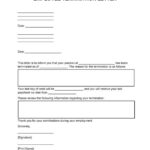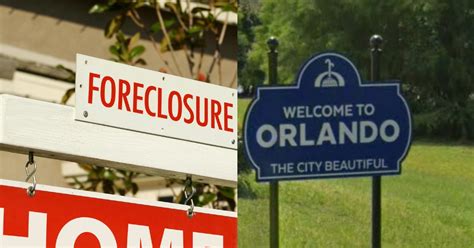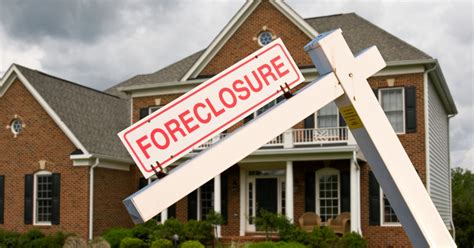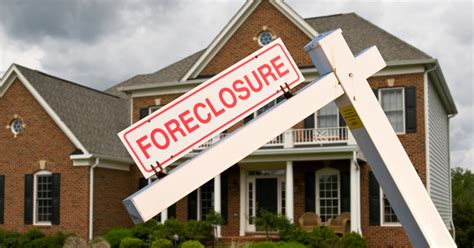
A heated outburst from a neighbor derailed a recent home showing in Massachusetts, leaving prospective buyers furious and the seller in distress after the neighbor screamed negative remarks about the property and neighborhood during the open house.
The incident, which unfolded during a scheduled open house, involved a neighbor who unleashed a tirade against the property, scaring away potential buyers and jeopardizing the sale. According to the original Reddit post by the seller’s agent, the neighbor’s comments included warnings about the neighborhood and disparaging remarks about the house itself, calling it a “dump,” leaving potential buyers uncomfortable and unwilling to proceed with viewing the property. This disruption has not only caused emotional distress for the seller but also significant financial implications, as the sale is now in jeopardy.
The real estate agent, identified on Reddit as u/badadvice2024throwaway, shared the story in a post titled, “Neighbor interrupted open house and told buyers not to buy the house,” detailing the chaotic scene that unfolded during the open house event. The agent described how the neighbor stood outside the property and actively discouraged potential buyers, making claims about the house’s condition and the undesirability of the neighborhood. The agent added, “He stood outside and told people not to buy the house and that it was a dump and the neighborhood sucks.”
The neighbor’s actions are now raising questions about property rights, neighborhood disputes, and the legal recourse available to sellers in such situations. Experts suggest that the seller may have grounds for legal action against the neighbor for interference with a business transaction, defamation, or creating a nuisance. However, pursuing such legal avenues can be complex and costly, requiring careful consideration and evidence gathering.
The incident also highlights the broader challenges faced by real estate agents and sellers in managing external factors that can influence property sales. While agents are trained to handle various issues, such as staging, marketing, and negotiations, dealing with unpredictable neighborly disputes can present unique challenges that require tact, diplomacy, and sometimes, legal intervention.
The real estate agent’s Reddit post has sparked widespread discussion among real estate professionals and homeowners, with many sharing similar experiences and offering advice on how to prevent or mitigate such incidents. Common suggestions include proactive communication with neighbors, clear boundary setting, and documenting any instances of harassment or interference. Some have also advised sellers to disclose any known neighborhood disputes to potential buyers to avoid future legal complications.
Impact on Buyers and Seller
The immediate impact of the neighbor’s outburst was palpable. Potential buyers, already making significant financial and lifestyle decisions, were understandably “livid” and unwilling to proceed with the showing, according to the agent. The seller, who was relying on the sale of the property to move forward with their own plans, was left “reeling” from the unexpected disruption and the uncertainty it created.
“I don’t know what to do,” the agent wrote, expressing the seller’s frustration and helplessness. The incident not only jeopardized the current sale but also raised concerns about the property’s future marketability. Potential buyers might be hesitant to view the property again, fearing similar disruptions or harboring concerns about neighborhood tensions.
The seller now faces the challenge of rebuilding trust with potential buyers and addressing any lingering concerns about the property and the neighborhood. This may involve additional marketing efforts, price adjustments, or even legal action against the neighbor to prevent further interference.
Legal and Ethical Considerations
The neighbor’s actions raise several legal and ethical questions. While individuals have the right to express their opinions, there are limits to free speech when it interferes with another person’s business or causes harm. In this case, the neighbor’s direct interference with the open house and disparaging remarks about the property could be construed as tortious interference with a business transaction.
Tortious interference occurs when a person intentionally damages another person’s contractual or business relationships. To prove tortious interference, the seller would need to demonstrate that the neighbor knew about the pending sale, intentionally interfered with it, and caused damages as a result.
Additionally, the neighbor’s remarks could potentially be considered defamation if they contained false statements that harmed the seller’s reputation. Defamation requires proof that the statements were false, communicated to a third party, and caused damage to the seller’s reputation.
From an ethical standpoint, the neighbor’s actions are widely seen as inappropriate and inconsiderate. While neighborhood disputes are not uncommon, resorting to direct interference with a property sale is generally considered a breach of community norms and a violation of the seller’s right to peacefully market their property.
Strategies for Mitigation and Prevention
Real estate professionals and homeowners can take several steps to mitigate and prevent similar incidents from occurring. Proactive communication with neighbors is key. Before listing a property, sellers and agents should consider reaching out to neighbors to inform them of the upcoming sale and address any potential concerns. This can help build goodwill and prevent misunderstandings.
Clear boundary setting is also important. Sellers have the right to conduct open houses and showings without interference, and neighbors should respect those boundaries. If a neighbor expresses concerns or objections, it’s important to address them respectfully but firmly, making it clear that interference with the sale will not be tolerated.
Documenting any instances of harassment or interference is crucial. Sellers and agents should keep a record of any interactions with problematic neighbors, including dates, times, and details of the incidents. This documentation can be valuable if legal action becomes necessary.
In some cases, it may be advisable to involve a mediator or community dispute resolution center to address neighborhood tensions and find mutually agreeable solutions. Mediation can provide a neutral forum for neighbors to discuss their concerns and work towards a resolution without resorting to litigation.
Expert Opinions and Insights
Real estate experts and legal professionals have weighed in on the incident, offering insights and advice for sellers and agents. Barbara Weltman, a small business expert, noted that while the seller could potentially sue the neighbor for tortious interference, it is often difficult to prove damages and the legal process can be lengthy and expensive.
“In theory, yes, the seller has a cause of action for tortious interference. But to prove it, you have to show damages. It’s an uphill battle, especially when real estate sales rise and fall for so many different reasons,” Weltman said.
Other experts have emphasized the importance of disclosure. While sellers are not always required to disclose neighborhood disputes, it may be prudent to do so if the dispute is likely to affect the property’s value or the buyer’s enjoyment of the property.
“In most states, sellers are required to disclose any known defects or conditions that could affect the value or desirability of the property,” said real estate attorney Barry Miller. “While a neighborhood dispute may not be considered a defect, it could be argued that it is a condition that should be disclosed if it is likely to impact the buyer’s decision.”
The Role of Social Media
The incident has gained widespread attention due to its virality on social media platforms like Reddit. The agent’s post has been shared and commented on by thousands of users, highlighting the power of social media to amplify local disputes and influence public opinion.
While social media can be a valuable tool for sharing information and raising awareness, it can also exacerbate conflicts and damage reputations. In this case, the neighbor’s actions have been widely condemned online, and the incident has become a cautionary tale for others.
Real estate professionals are increasingly using social media to market properties and connect with potential buyers. However, they must also be mindful of the potential risks and ethical considerations involved in using these platforms.
Future Implications
The incident raises broader questions about the future of real estate sales and the challenges of managing neighborhood disputes in an increasingly interconnected world. As communities become more diverse and housing costs continue to rise, conflicts between neighbors are likely to become more common.
Real estate agents and sellers must be prepared to address these challenges proactively and creatively. This may involve developing new strategies for communication, conflict resolution, and risk management. It may also require greater collaboration between real estate professionals, legal experts, and community organizations.
Ultimately, the goal is to create a more harmonious and equitable housing market where sellers can market their properties without fear of interference and buyers can make informed decisions based on accurate and reliable information.
The Broader Context of Neighborhood Disputes
Neighborhood disputes are a persistent feature of community life, ranging from minor annoyances to serious conflicts that can escalate into legal battles. Common sources of contention include noise complaints, property line disagreements, parking issues, and disputes over landscaping or pets.
In some cases, neighborhood disputes can be resolved through informal communication and compromise. However, when disagreements become entrenched, it may be necessary to involve a mediator, community dispute resolution center, or even the courts.
The legal framework governing neighborhood disputes varies from state to state and locality to locality. However, most jurisdictions have laws in place to address issues such as nuisance, trespass, and property damage.
Homeowners associations (HOAs) also play a significant role in regulating neighborhood conduct and resolving disputes within planned communities. HOAs typically have the authority to enforce covenants, conditions, and restrictions (CC&Rs) that govern the use and maintenance of properties within the community.
Psychological Impact of Neighborhood Conflicts
Neighborhood conflicts can have a significant psychological impact on those involved. Constant stress and tension can lead to anxiety, depression, and other mental health issues. Disputes with neighbors can also erode social connections and create a sense of isolation.
In some cases, neighborhood conflicts can escalate into harassment or even violence. It is important to take steps to de-escalate conflicts and seek help from authorities if necessary.
Insurance Coverage for Neighborhood Disputes
Homeowners insurance policies may provide some coverage for legal expenses and damages arising from neighborhood disputes. However, coverage is typically limited and may not apply to all types of disputes.
It is important to review your insurance policy carefully and consult with an insurance agent to understand the scope of coverage for neighborhood disputes.
Long-Term Solutions for Harmonious Communities
Building harmonious communities requires a multi-faceted approach that addresses the root causes of conflict and promotes communication, understanding, and respect.
Community organizations, local governments, and residents themselves can play a role in fostering positive relationships and resolving disputes peacefully. Initiatives such as community gardens, neighborhood watch programs, and social events can help build connections and create a sense of shared identity.
Education and awareness campaigns can also help promote understanding of different cultures, lifestyles, and perspectives. By fostering empathy and tolerance, communities can create a more welcoming and inclusive environment for all residents.
Frequently Asked Questions (FAQ)
-
What legal recourse does the seller have against the neighbor who disrupted the home showing?
The seller may have several potential legal avenues depending on the specific facts and local laws. These include:
- Tortious Interference with a Business Expectancy: This claim alleges that the neighbor intentionally interfered with the seller’s ability to sell the house. To succeed, the seller would need to prove that the neighbor knew about the potential sale, intentionally interfered with it (e.g., by making disparaging remarks), and that the interference caused the sale to fall through or be delayed, resulting in damages to the seller.
- Defamation: If the neighbor made false statements about the property or the seller that harmed their reputation, the seller could potentially sue for defamation (either libel, if written, or slander, if spoken). Proving defamation requires showing that the statements were false, published to a third party, and caused actual damages.
- Nuisance: If the neighbor’s behavior is ongoing and unreasonably interferes with the seller’s use and enjoyment of their property, it could be considered a nuisance. A nuisance claim typically requires showing that the neighbor’s actions are substantial, unreasonable, and interfere with the seller’s property rights.
- Harassment: If the neighbor’s actions constitute a pattern of intimidating or threatening behavior, the seller may be able to seek a restraining order or other protective order to prevent further harassment.
It is important to note that the success of any legal claim will depend on the specific facts of the case and the applicable state and local laws. The seller should consult with an attorney to discuss their legal options and determine the best course of action.
-
What can real estate agents do to prevent similar incidents from happening during future showings?
Real estate agents can take several proactive steps to minimize the risk of neighborly interference during showings:
- Communicate with Neighbors: Before listing the property, reach out to the neighbors to inform them of the upcoming sale and open houses. This can help build goodwill and address any potential concerns or misunderstandings proactively.
- Set Expectations: Politely inform neighbors that you will be conducting open houses and showings and request their cooperation in allowing potential buyers to view the property undisturbed.
- Be Present and Vigilant: Be present during all showings and open houses to monitor the surrounding area and address any potential issues promptly.
- Document Everything: Keep a detailed record of any interactions with neighbors, including dates, times, and specific details of any incidents or concerns.
- Alert Local Authorities: If a neighbor becomes disruptive or threatening, don’t hesitate to contact the local police department or other law enforcement agency to ensure the safety of potential buyers and prevent further interference.
- Consider Security Measures: For high-profile or potentially contentious properties, consider hiring security personnel to monitor the open house and deter potential troublemakers.
- Disclose Known Issues: Be transparent with potential buyers about any known neighborhood disputes or issues that could affect their enjoyment of the property.
-
Should the seller disclose the neighbor’s outburst to potential buyers, and if so, how?
Whether to disclose the neighbor’s outburst is a complex question with potential legal and ethical implications. Here’s a breakdown:
- Disclosure Requirements: Many states have laws requiring sellers to disclose any known material defects or conditions that could affect the value or desirability of the property. A neighbor dispute could potentially be considered such a condition, especially if it’s ongoing or likely to recur.
- Ethical Considerations: Even if not legally required, disclosing the incident could be the ethical thing to do. Transparency builds trust with potential buyers and allows them to make informed decisions.
- How to Disclose: If disclosing, do so in a factual and non-emotional manner. Focus on the specifics of the incident (e.g., “During a recent open house, a neighbor made some negative comments about the property to potential buyers”). Avoid exaggeration or speculation about the neighbor’s motives.
- Written Disclosure: Include the disclosure in the written property disclosure form that is typically provided to potential buyers. This creates a clear record of the disclosure and protects the seller from future claims of non-disclosure.
- Offer Context: If possible, provide some context for the dispute. For example, if the neighbor’s outburst was an isolated incident or if there’s been an ongoing effort to resolve the issue.
- Legal Advice: Consult with a real estate attorney to determine the specific disclosure requirements in your state and to ensure that you are complying with all applicable laws.
The decision to disclose will depend on the specific facts of the case and the applicable state and local laws. However, erring on the side of transparency is generally advisable to avoid potential legal issues down the road.
-
What are the potential long-term impacts of this incident on the property’s value and marketability?
The neighbor’s outburst could have several potential long-term impacts on the property’s value and marketability:
- Stigma: The incident could create a stigma around the property, making it more difficult to attract potential buyers. Word-of-mouth and social media can spread negative perceptions, even if the incident was isolated.
- Reduced Buyer Interest: Potential buyers may be hesitant to view the property or make an offer, fearing similar disruptions or concerns about neighborhood tensions.
- Lower Offers: Buyers who are interested in the property may offer lower prices to compensate for the perceived risk or inconvenience associated with the neighbor dispute.
- Extended Time on the Market: The property may remain on the market for a longer period of time, as it takes longer to find a buyer who is willing to overlook the negative publicity surrounding the incident.
- Disclosure Requirements: Future sellers of the property may be required to disclose the incident to potential buyers, which could further impact its value and marketability.
To mitigate these potential impacts, the seller may need to take proactive steps to address the underlying issues and reassure potential buyers. This could include taking legal action against the neighbor, engaging in mediation to resolve the dispute, or making improvements to the property to enhance its appeal.
-
What steps can homeowners take to prevent neighborhood disputes from escalating in the first place?
Preventing neighborhood disputes requires a proactive approach based on communication, respect, and a willingness to compromise. Here are some key steps:
- Communicate Openly and Respectfully: Make an effort to get to know your neighbors and communicate with them openly and respectfully. Address any concerns or issues promptly and avoid making assumptions or jumping to conclusions.
- Follow Community Rules: Familiarize yourself with the rules and regulations of your homeowner’s association (HOA) or community and comply with them. This can help prevent misunderstandings and conflicts.
- Be Considerate of Others: Be mindful of your neighbors’ privacy, property, and lifestyles. Avoid making excessive noise, parking in their driveways, or allowing your pets to trespass on their property.
- Address Issues Early: If you have a concern about a neighbor’s behavior, address it with them directly in a calm and respectful manner. Avoid escalating the situation or involving other neighbors until you have had a chance to discuss it with the person involved.
- Seek Mediation: If you are unable to resolve a dispute with a neighbor on your own, consider seeking mediation through a neutral third party. Mediation can provide a structured and confidential forum for discussing the issues and finding mutually agreeable solutions.
- Document Everything: Keep a record of any interactions with neighbors, including dates, times, and specific details of any incidents or concerns. This documentation can be helpful if you need to involve authorities or pursue legal action.
- Participate in Community Activities: Get involved in community activities and events to build relationships with your neighbors and foster a sense of community. This can help create a more positive and supportive environment where disputes are less likely to escalate.









